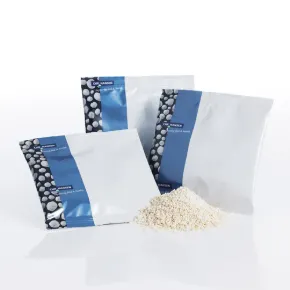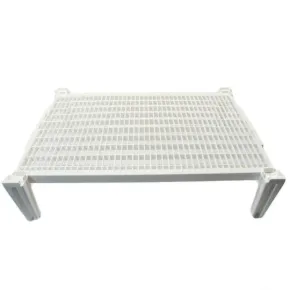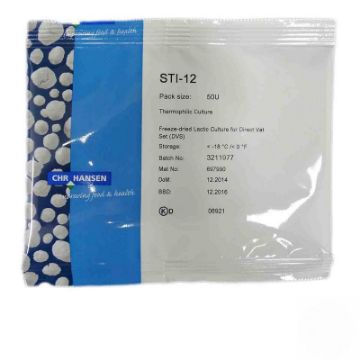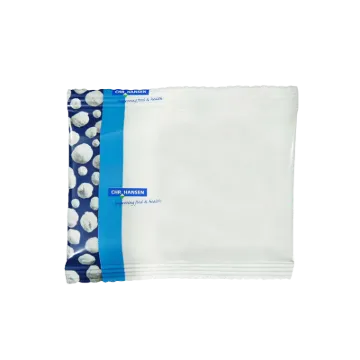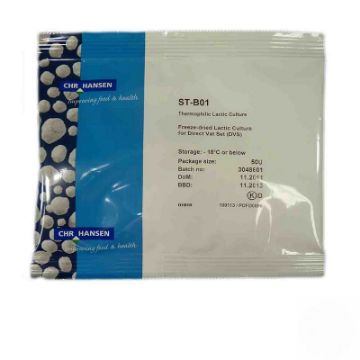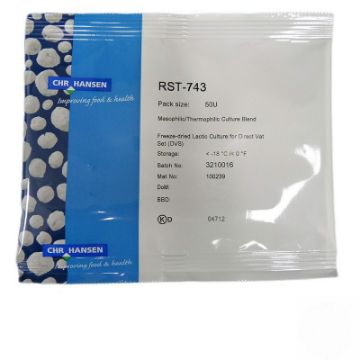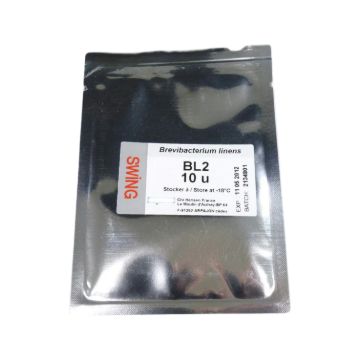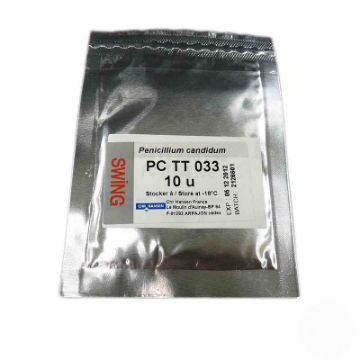Products tagged with 'Chr Hansen'
STI-12 Freeze-dried 50 u
Thermophilic lactic acid culture.
The culture is primarily applied in Pasta Filata cheese types e.
g Mozzarella and Pizza cheese types.
The culture can be applied alone or in combination with other lactic acid cultures, e.g. Lactobacillus delbrueckii subsp.bulgaricus and Lactobacillus helveticus.
ST-B01 Freeze-dried 50 u
Defined thermophilic culture containing strains selected for their moderate lactic acid production and low post acidification.
The culture is primarily applied in the production of soft cheeses with low post acidification, e.g. stabilized cheeses and modern Camembert and Emmenthal types.
The culture can be applied alone (for stabilized soft cheese) or in combination with other lactic acid cultures, e.g. Lactobacillus helveticus (for Emmenthal).
RST-743 Freeze-dried 50 u
A defined strain homofermentative culture blend with improved resistance to bacteriophages.
The culture does not produce CO2.
The culture is primarily applied in the production of semi-hard, hard and very hard pressed cheeses with a closed texture and a min cooking temperature at 35°C (95°F).
Examples of applications are Cheddar, Cheshire, Colby, Monterey Jack, Munster, Fontal, Raclette & Saint Paulin.
BL-2 Swing Freeze-dried 10 u
A selected single strain culture with origins in traditional cheese making.
Brevibacterium is one of the most important surface bacteria for its role in coloring the surface of the cheese, and producing flavor.
The culture may be applied in the production of smeared soft and semi-hard cheeses, mold soft cheese, or mixed rind cheeses.
TT033 Swing Freeze-dried 10 u
Selected mold strains with origin in traditional cheese making.
SWING® PC culture is an essential ingredient in the ripening process of white mold cheeses for its role in coloring the surface of the cheese, and contributing to the flavor and texture, as well as protection against contaminants.
The strains may be used on soft cheese with lactic features, camembert/brie types, Tomme, UF soft cheeses, stabilized soft cheeses and soft cheese with rennet features.

